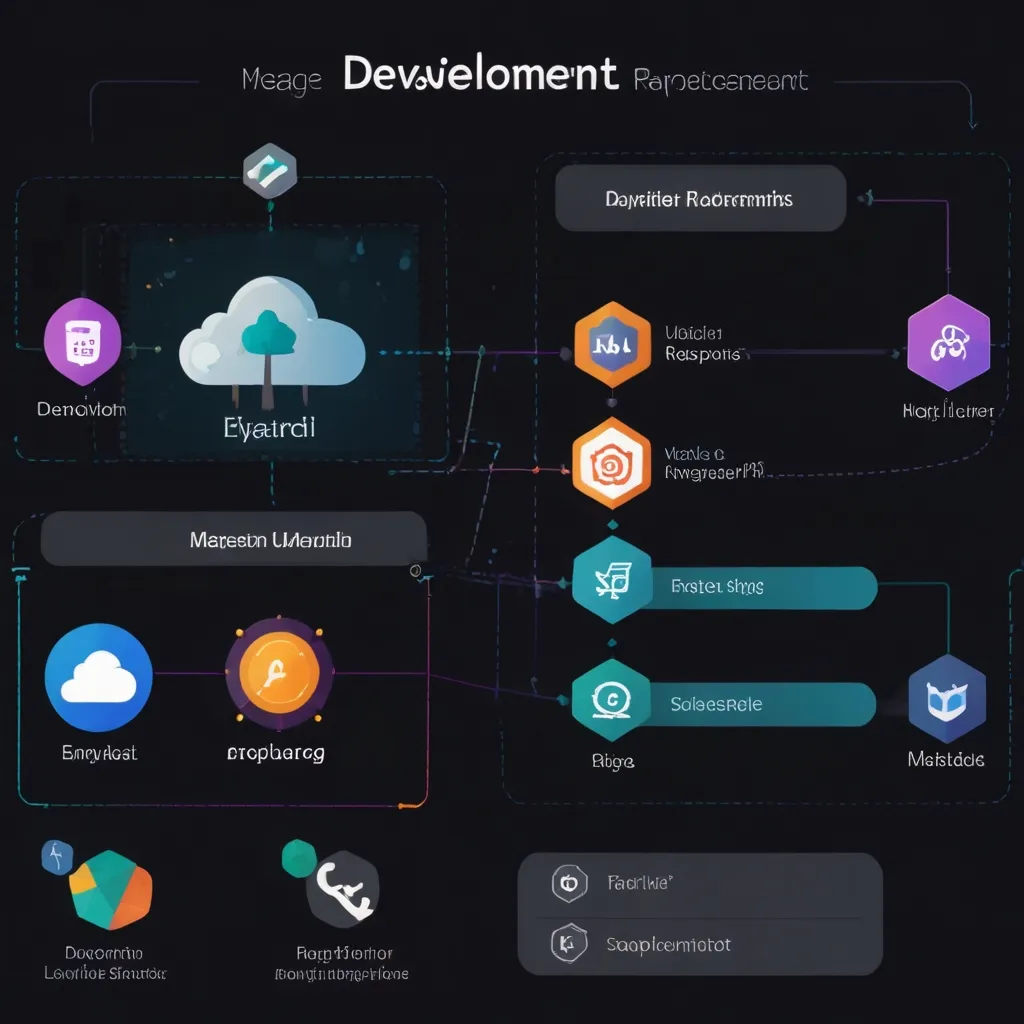C is one of those evergreen programming languages that continue to thrive in the world of software development, capturing a special spot in the hearts of embedded system developers. Amidst the myriad of frameworks and testing tools available, MinUnit is a minimalist unit testing framework tailored precisely for the world of embedded C development. It’s a nifty little tool, capable of simplifying our development process by ensuring our code does what it’s supposed to do without the overhead of more complex systems.
So, what exactly makes MinUnit stand out? For starters, its minimal footprint is what we often crave when working within the constraints of embedded systems. We don’t have the luxury of fluff—every byte counts. MinUnit knows this and keeps things crisp and concise. Picture this: getting the job done without drowning in libraries or dependencies that weigh your project down. That’s the allure of MinUnit.
The essence of MinUnit lies in its simplicity. It’s nothing more than a header file with a couple of macros that allow us to craft our test cases swiftly. This simplicity doesn’t come at the cost of functionality, though. On the contrary, MinUnit gives us precisely what we need to get our tests running with minimum fuss. The basic structure involves creating test cases using the mu_assert macro to verify outcomes and mu_run_test to execute the cases. It’s straightforward and elegant.
Setting up MinUnit involves popping open your favorite code editor and diving straight into crafting tidy, organized test cases. Sure, we could be handling a vast embedded project, but with MinUnit, the testing aspect becomes refreshingly undemanding. It’s like the silent partner in a heist movie—steady, reliable, and keeps you out of trouble.
Imagine working on an embedded application—perhaps it’s something fun, like a temperature monitoring system for a homemade smart fan. You’ve crafted the functions that calculate optimum speeds based on temperature input, but now you’ve got to ensure it’s not veering off course. This is where MinUnit steps in, sneaking right into your test suite without upsetting your setup. By writing test cases for each function, you can assert the correct fan speed for a given temperature range and instantly know when something’s amiss.
MinUnit doesn’t just stop there; it offers a quick and efficient feedback loop. Let’s say you add a new feature, like a humidity sensor integration alongside temperature. Your test cases give you a convenient way to confirm everything meshes together fine—no sweating over broken integrations or mysterious bugs slipping in unnoticed.
Isn’t there a bit of poetry in the way MinUnit operates? It lets us focus on our code, the content of those precious few lines, rather than the testing overhead. There’s a harmony to it, the kind of balance one looks for whether sautéing the last-minute dinner or coding past midnight.
What slides MinUnit into the ‘favorites’ folder of many developers, including myself, is how it adapts without demanding the world from your continuous integration pipeline. We understand the frustration of CI setups turning into beastly undertakings, demanding sacrifices of lead time and sanity. With MinUnit, it’s mostly plug-and-play, just a little configuration tango, and your tests are executing like symphonies.
Let’s dig into a bit of code to see how this all unfurls. In your C file, you might have a test like this:
#include "MinUnit.h"
int tests_run = 0;
static char * test_temperature_conversion() {
mu_assert("error, convert_temp(F) != 37", convert_temp(98.6) == 37);
return 0;
}
static char * all_tests() {
mu_run_test(test_temperature_conversion);
return 0;
}
int main(int argc, char **argv) {
char *result = all_tests();
if (result != 0) {
printf("%s\n", result);
}
else {
printf("ALL TESTS PASSED\n");
}
printf("Tests run: %d\n", tests_run);
return result != 0;
}
In this snippet, we created a test for a hypothetical temperature conversion function. We assert that converting 98.6 Fahrenheit should yield 37 Celsius. If it doesn’t, the assertion will kindly alert us. The little mu_assert is like your responsible friend reminding you to double-check your text before hitting send. And when you see “ALL TESTS PASSED,” it’s a pat on the back, confirming you’ve hit the nail on the head.
Your growing suite of tests lives in the project, ready to spring into action at the first sign of refactoring, or adding that inevitable, eagerly anticipated feature. It’s comforting to know everything can be verified with minimal setup, offering peace of mind that the system remains intact.
As we navigate beyond MinUnit’s core offerings, it’s intriguing how its elegance shines through scenarios far and wide. We might find ourselves on a sprawling journey, enhancing a project with more modules, and it’s reassuring to realize each new component can fall comfortably under MinUnit’s watchful gaze.
Now, while the framework is low on frills, don’t mistake it for lacking adaptability. We might feel the itch to expand its functionality—maybe integrating more sophisticated reporting or piecing together a custom build script. MinUnit plays nice; it allows these enhancements, accommodating small tweaks that align with our project’s demands. It’s like giving an old friend a fresh outfit to better fit the occasion.
In a world where software methodologies are continuously evolving and complexifying, MinUnit’s prerogative remains unpretentious, steadfast: enabling simple, effective testing. It’s implicit that we don’t all have a penchant for flashy, high-maintenance frameworks, and MinUnit praises us for crafting creative, lean solutions by simplifying this aspect.
Let’s not forget how rewarding it feels when our projects, with their sleek, efficient code, mingle seamlessly with the framework’s minimal demands. There’s freedom in MinUnit’s way that caters to those who like their code clean, direct, and effective—to those, it becomes more than a tool; it becomes akin to a trusted old pal.
Overhauling an existing project? Venturing into new territories with adventurous embedded functions? With MinUnit, we’ve armed ourselves with a silent guardian, ensuring our applications are vigilant from day one. The joy of it is in knowing we’re cultivating robust solutions without raising our blood pressure—a feel-good factor that ensures, in our corner of the digital ecosystem, things hum along smoothly.
In this efficient world of embedded C, MinUnit speaks to the centurion in all of us, allowing our software, however complex or simple, to perform like a symphony—flawless, unfaltering, and wonderfully reliable. Here’s to discovering and embracing tools like these, evoking patience and creativity as we build solutions that resonate beyond mere lines of code.






